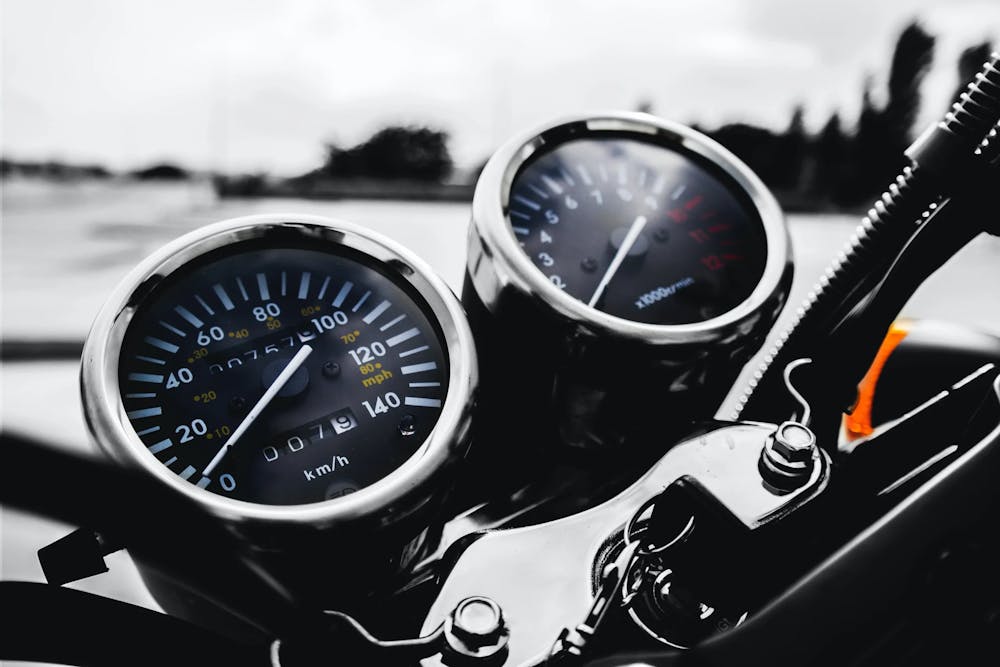How Long Do I Have to File a Claim After a Motorcycle Accident in Texas?
 If you have been involved in a motorcycle accident, car accident, or another accident on the road, then you only have a certain amount of time to file a claim. Contacting a motorcycle accident lawyer as soon as possible should help you claim compensation within the statute of limitations set out by Texas law.
If you have been involved in a motorcycle accident, car accident, or another accident on the road, then you only have a certain amount of time to file a claim. Contacting a motorcycle accident lawyer as soon as possible should help you claim compensation within the statute of limitations set out by Texas law.
What Is a Statute of Limitations?
A statute of limitations is a period of time when you are allowed to take legal action after an incident. Basically, it means there’s only a certain amount of time you have to file a claim after a car accident. If you attempt to make a claim or file a lawsuit once the statute of limitations has run out, then you cannot legally pursue compensation.
Statutes of limitations apply to all manner of situations, ranging from personal injury lawsuits to crimes. The statute of limitations on a car accident lawsuit differs depending on your state, so you must always pay attention specifically to Texas law when considering how long you have to file a claim.
What Is the Statute of Limitations on Motorcycle Accidents?
The Texas statute of limitations on motorcycle accidents is two years. This means you must take action within the two-year deadline if you wish to seek compensation. The two years start on the date of the “cause of action,” which in the case of a motorcycle or car accident is the date the accident occurred.
Filing car accident claims promptly is always a good idea so you can stay within that two-year deadline. The Texas statute of limitations of two years applies to all motor vehicle accidents, and generally, all personal injury claims.
Contact a personal injury attorney to help you through the claims process if you are not sure how to begin.
How Soon After a Motorcycle, or Car Accident Should I Contact the Insurance Company?
 Contacting your insurance company shouldn’t be the first thing on your mind after a motorcycle wreck. Filing an insurance claim can wait until you have gotten medical help. The first thing you need to do is call emergency services, then seek medical attention. If you cannot do this, then the other driver should do it.
Contacting your insurance company shouldn’t be the first thing on your mind after a motorcycle wreck. Filing an insurance claim can wait until you have gotten medical help. The first thing you need to do is call emergency services, then seek medical attention. If you cannot do this, then the other driver should do it.
If you are the at-fault party, then you should contact your insurance provider to inform them about the accident as soon as you are able. However, if you are the one seeking compensation, then you probably aren’t the at-fault driver. In this case, it’s up to the other driver to inform their insurance provider of the accident.
You may still wish to contact your insurance provider even if you intend to make an accident claim to pursue compensation from the other party. The other driver may be underinsured, meaning their insurance coverage doesn’t cover property damage in the case of an accident.
If you are unsure of whether you should let your insurance company know about the accident, then ask your attorney. It’d be wise to get yourself an attorney before you contact your insurance company, so you have somebody to advise you on the situation.
What If the Other Driver’s Insurance Company Denies the Claim?
When you file a personal injury claim in Texas, there’s always a chance that the other driver’s insurance company will deny that claim or attempt to give you a lowball settlement. This is not the end of the road. If you have not contacted a personal injury lawyer, then you should do so immediately.
There are likely recoverable damages involved in this situation, so getting in touch with a motorcycle injury lawyer who regularly works on motorcycle accident cases should help you pursue those damages even if the company initially denies the claim.
Even if the company continues to deny your claim once you have got legal representation, your attorney may advise you to file a suit in court if your case is strong enough. If filing a lawsuit would be inadvisable, then your attorney may advise you to file a claim with your insurance company, so your insurance company can pay out, attempt to recover the sum from the other driver’s insurance company, then reimburse you your deductible.
However, if you have a strong enough case, then there’s a good chance your attorney will be able to negotiate something with the other driver’s insurance company even if they deny your claim at first.
What Can Motorcycle Injury Lawyers Do for You After an Accident?
Immediately after an accident, a motorcycle injury attorney can let you know your legal rights and legal options for pursuing fair compensation. They can also help you calculate your damages and determine what type of recoverable damages apply to your case. They will likely advise you on the minimum amount you should accept from the insurance company and the maximum amount you may be entitled to when making your accident claim.
The lawyer will usually also:
- Investigate to prove liability
- Deal with settlement negotiations
- Prevent debt collectors from seeking money from you
- File a lawsuit if you cannot settle without going to court
- Help you adhere to your filing deadline
Dealing with matters of the law can be tricky, and adhering to various deadlines, such as the filing deadline for filing a lawsuit, can be difficult too. Simply ask your attorney for assistance if you need it, and they should be able to help you throughout your case.
What Kind of Compensation Might I Receive After a Motorcycle Accident?
 There are many types of damages you may recover after a car accident or motorcycle accident. You can often recover these damages without the need to file a lawsuit. Often, several types of damages can be recovered in one motorcycle accident claim. Your attorney should be able to advise on what kind of which damages may apply in your motorcycle accident claim.
There are many types of damages you may recover after a car accident or motorcycle accident. You can often recover these damages without the need to file a lawsuit. Often, several types of damages can be recovered in one motorcycle accident claim. Your attorney should be able to advise on what kind of which damages may apply in your motorcycle accident claim.
Medical Bills
Medical bills are often reimbursed in personal injury claims. Part of building your motorcycle accident case will be proving that you were injured. The insurance adjuster will usually expect you to seek compensation for injuries in a car accident claim, as car accidents often cause both serious injuries and minor injuries.
When pursuing reimbursement for medical bills in a personal injury lawsuit, you may have to undergo a medical assessment, have your medical records examined, and give testimony on what you experienced and how you are healing.
If you are dealing with high medical expenses you cannot pay, then debt collectors may come after you if you do not pay them promptly. Your attorney may be able to protect you from debt collectors while you are pursuing compensation after a motorcycle accident or car crash.
Lost Wages
You will likely miss some work while recovering from the injuries you sustained. Sometimes car accidents only cause minor injuries, so you can use up your sick days and return to work once healed. Other times, injuries take longer to heal, so you will have to take a substantial amount of time off work. You may also have to take time off to recover emotionally, and this leads to missing out on your wages for some time.
You may be able to recover compensation for lost wages when seeking a settlement or dealing with a personal injury lawsuit in Texas. You can often be compensated without the need to file a lawsuit.
Future lost income and lost earning capacity may also be factored into your settlement.
Property Damage
You may be reimbursed for damage to your property when you make a claim. If the other driver has sufficient insurance coverage, then reimbursement for damage to your property may be part of the settlement you are offered by the liable party’s insurance provider. If you cannot settle, then it may be something you pursue if your lawyer advises you to file a lawsuit with the court.
If you cannot recover compensation for property damage and your lawyer believes it would be unwise to file a lawsuit, then your own insurance policy may reimburse you for damage to your vehicle and belongings.
Pain and Suffering
“Pain and suffering” refers to many types of damages recoverable in personal injury claims. In Texas, pain and suffering refers to damages that do not have an exact monetary value. You may also hear this referred to as “non-economic damages” when dealing with personal injury claims.
Some forms of pain and suffering damages you may recover in Texas include compensation for:
- Physical pain and suffering
- Emotional anguish
- Disfigurement or scarring
- Loss of enjoyment of life
- Loss of consortium
Which type of non-economic damages are relevant varies with all claims. Your attorney will figure out the types of pain and suffering damages you can seek when you file a lawsuit with the court in Texas or when you pursue damages from the insurance provider without filing a lawsuit.
Punitive Damages
You may pursue punitive damages in Texas when attempting to negotiate a settlement or after you file your lawsuit with the court. Punitive damages may be awarded in cases where it’s determined the at-fault driver acted with gross negligence or malice. These damages are awarded to you and are intended to punish the driver who was at fault.
Contact Brian C. Gutierrez at 979-823-5555 for a free consultation if you have been involved in a motorcycle accident. You will need legal aid when making a personal injury claim in Texas, and getting a free case review and talking to an attorney will be incredibly helpful for you.
Talk to Us Today
Get a free case evaluation

